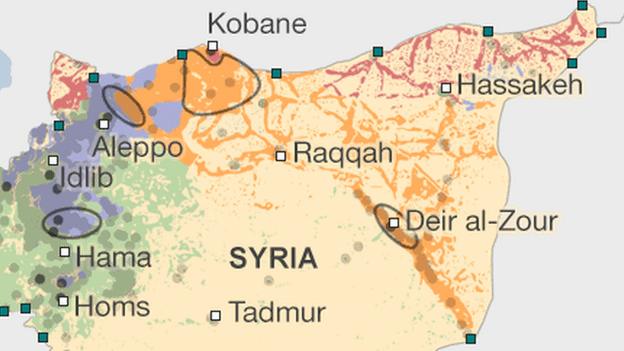What will downing of Russian jet mean for Turkey-Russia relations?
- Published
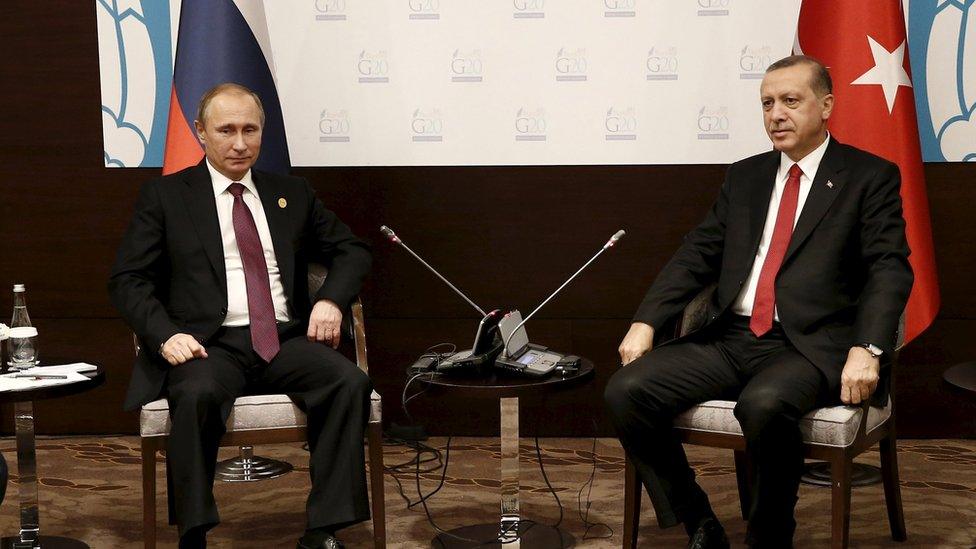
Both leaders have engaged in heated rhetoric after the incident
Russia has bitterly condemned the downing of its fighter jet on the Turkey-Syria border, with President Putin calling it "a stab in the back". But what will it mean for Turkey-Russia relations?
When Recep Tayyip Erdogan went from prime minister to president last year, he was accused of "pulling a Putin".
The two men do indeed have stark similarities: both have cultivated a strongman image, adored by their supporters but hated by opponents for eroding democracy and leading their countries into diplomatic isolation.
And both will respond to this latest crisis in the same way: with tough talk and flexing of muscles.
Vladimir Putin called the Turkish strike "a stab in the back" carried out by "accomplices of terror". President Erdogan revelled in announcing the downing of the plane, receiving a standing ovation from his audience.
What we know about downing of jet
Was jet downing an overreaction?
Where do key countries stand on Syria?
In fact, the reaction of both leaders is largely for domestic consumption.

Chess master in the Kremlin
The popularity of each president is fuelled by nationalism: in Mr Putin's case, his support soared with Russia's annexation of Crimea.
For Mr Erdogan, it's his nationalist rhetoric and hard line against Kurdish rebels that produced a crushing victory in the recent election.
Turkish nationalism undoubtedly played a large part in the decision to bring down the plane. Many Turks feel a connection with the Turkic-speaking minority in Syria, the Turkmens, whose ethnicity they share.
As Turkmen rebels have joined the uprising against the Assad regime in Syria, they've been pounded by Russian air strikes and 1,600 are thought to have fled towards the Turkish border in recent days.
Ankara makes great show of supporting Turkey's brethren - with open arms and ready firepower.
This video shows a plane falling to the ground on the Syrian border with Turkey
But the government here was irritated too by Russia's airspace violations last month - Turkish F16s harassed by a missile defence system and a Russian jet escorted out of Turkish airspace.
Warnings were issued - and, Ankara says, ignored. The violation this time lasted all of 17 seconds, according to Turkey. But a decision was taken that enough is enough.
All eyes now are on the chess master in the Kremlin, waiting for his next move.
'Grand coalition'
Russia has already announced a suspension of military cooperation with Turkey and warned tourists not to visit the country for fear of terrorism, a large Russian tour operator duly cancelling flights.
But the Russian ambassador to Ankara has not been recalled and there's even talk that both foreign ministers could meet in the coming days.
It points to the idea that the harsh words may not in fact be matched by action, that the fears of a serious military escalation could prove unfounded.
The reason: that in the wake of the Paris attacks and the bombing of the Russian plane over Sinai, a grand coalition against Islamic State was beginning to form.
Vladimir Putin was inching his country out of isolation after the Ukraine crisis, pictured in a huddle with President Obama at the G20 summit last week.
A united front is slowly building against a common enemy. And that might cool heads now.
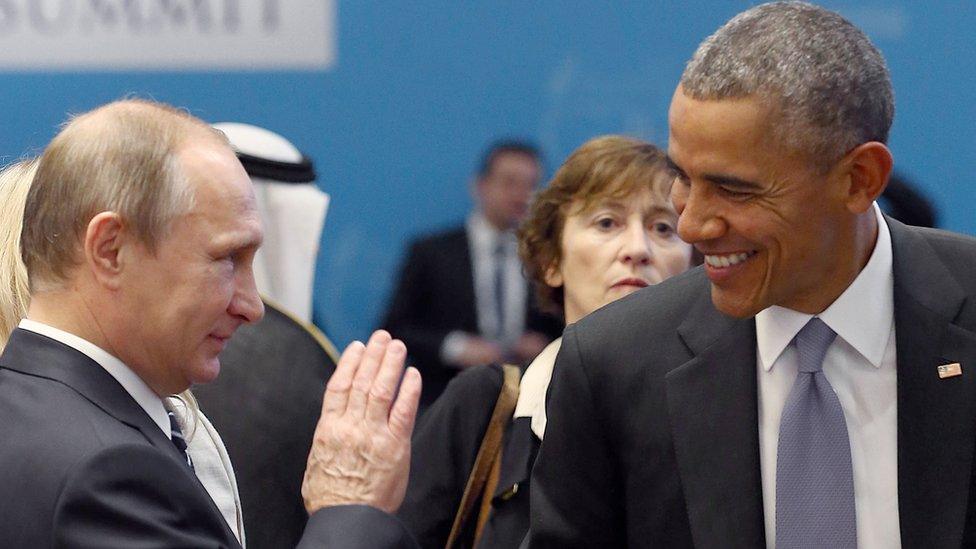
World leaders appeared to be moving towards a united front against IS at the recent G20 summit
Ankara and Moscow have a complicated relationship at the best of times and Russia's military intervention in Syria has infuriated Turkey, a staunch opponent of President Assad.
But the two sides need each other. Russia is Turkey's second largest trading partner. Sixty per cent of Turkey's energy is imported from Russia and last year, Turkey was the biggest foreign destination for Russian tourists.
Economic interests may mean both presidents step down swiftly from the moral high ground.
This is not to ignore the gravity of the situation: the first time in over half a century that a Nato member has shot down a Russian plane, the potential for escalation and a bilateral relationship plunged into crisis.
Another trait that both strongmen share is unpredictability. And that is what's perhaps most worrying.
- Published1 December 2015
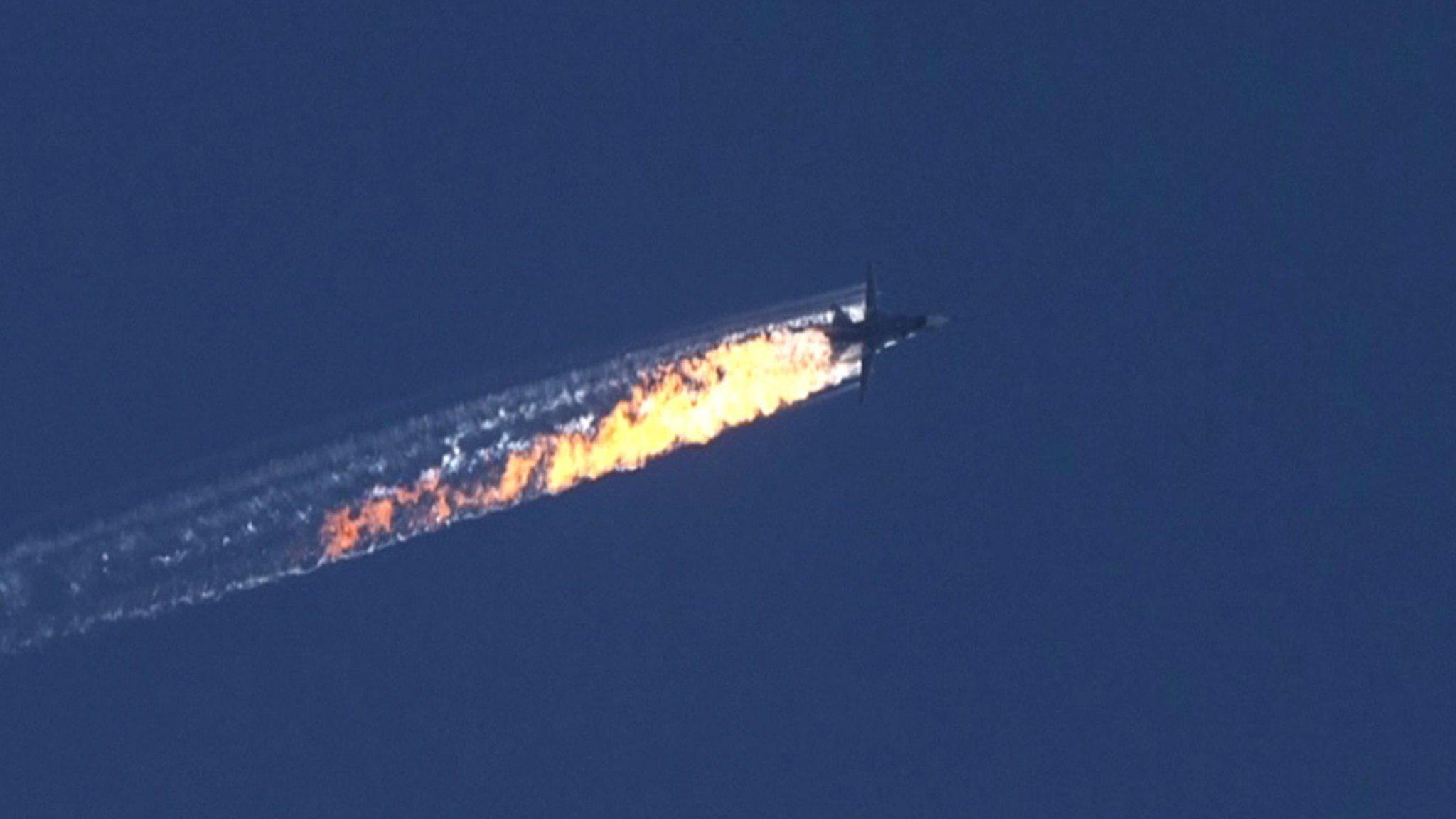
- Published24 November 2015
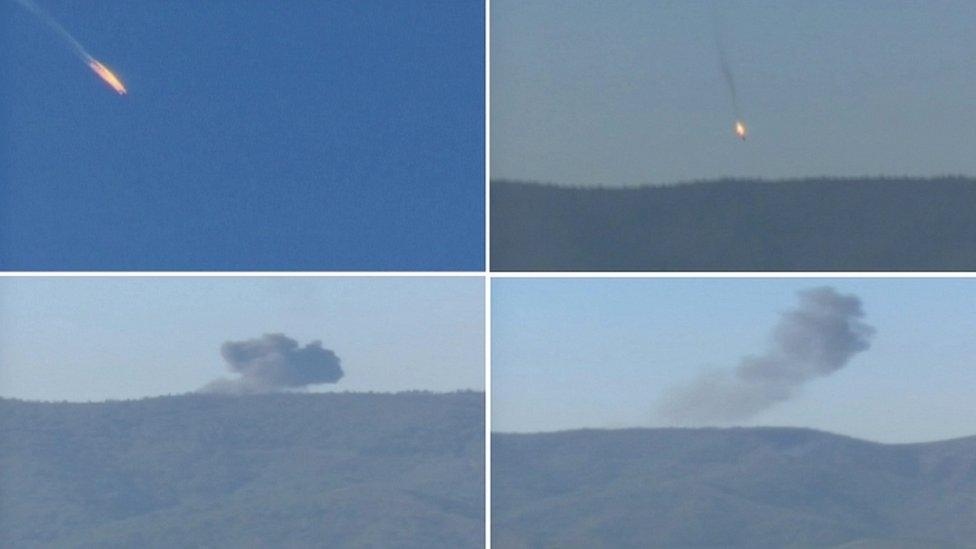
- Published8 October 2015
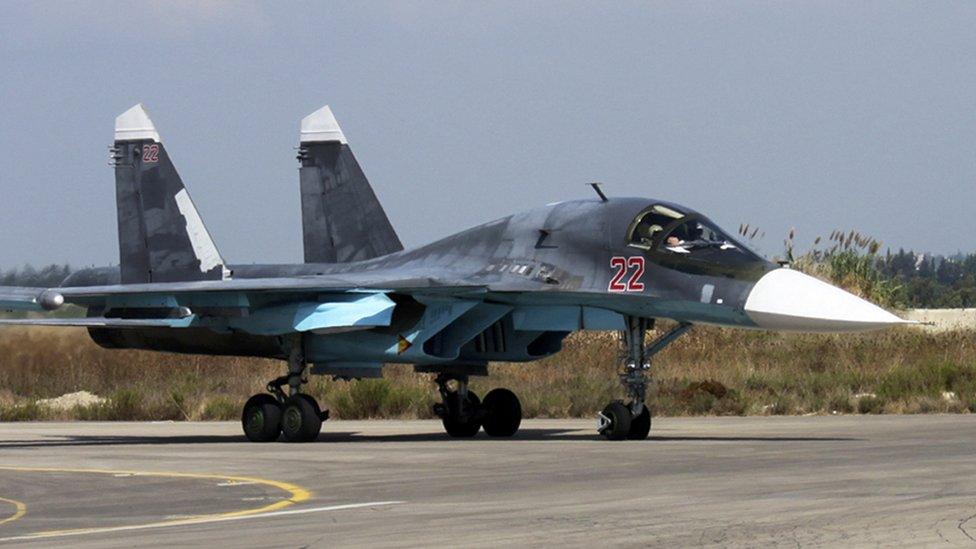
- Published1 October 2015
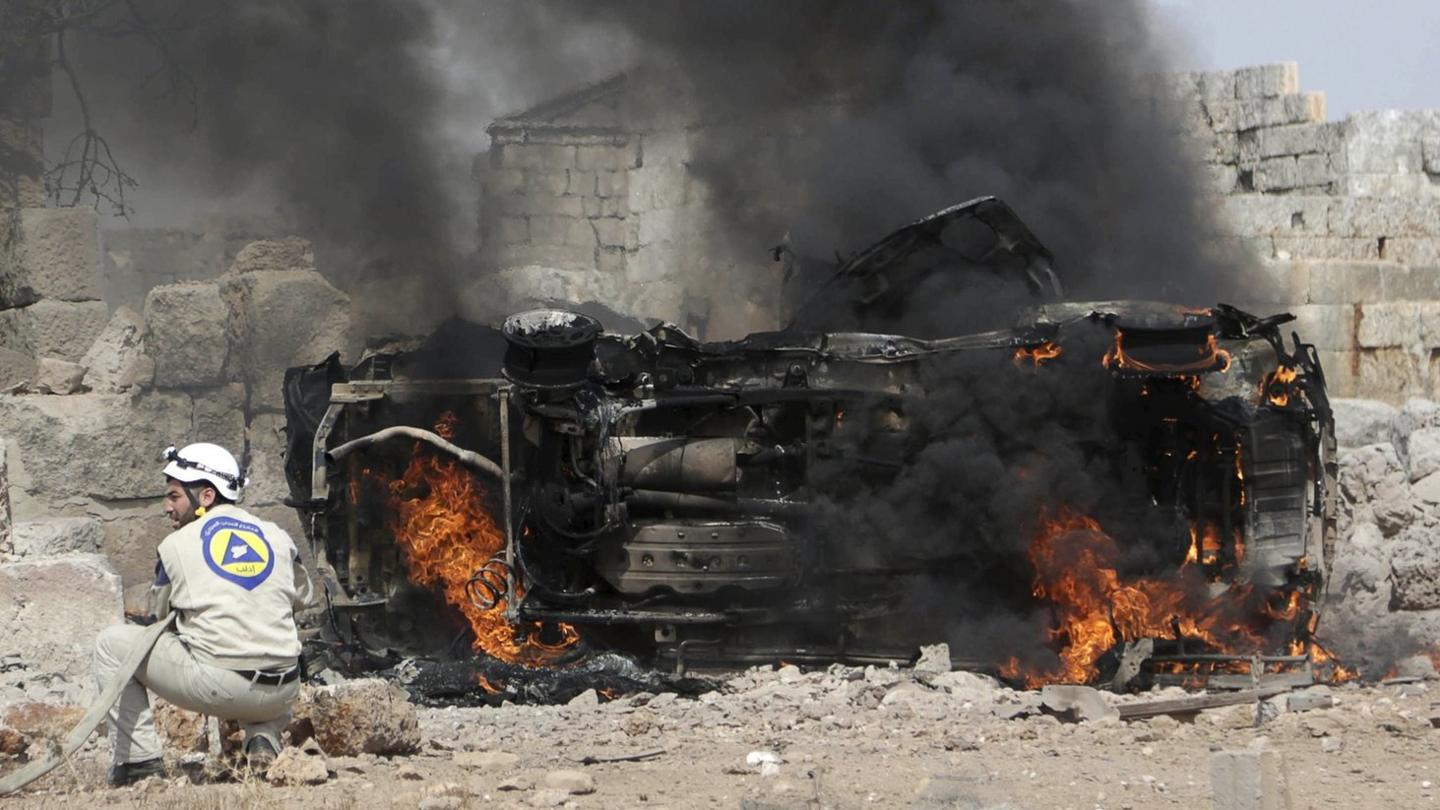
- Published30 October 2015
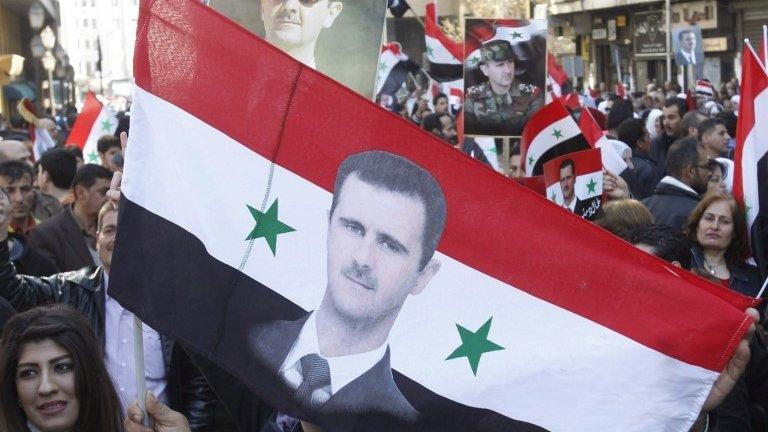
- Published7 October 2015
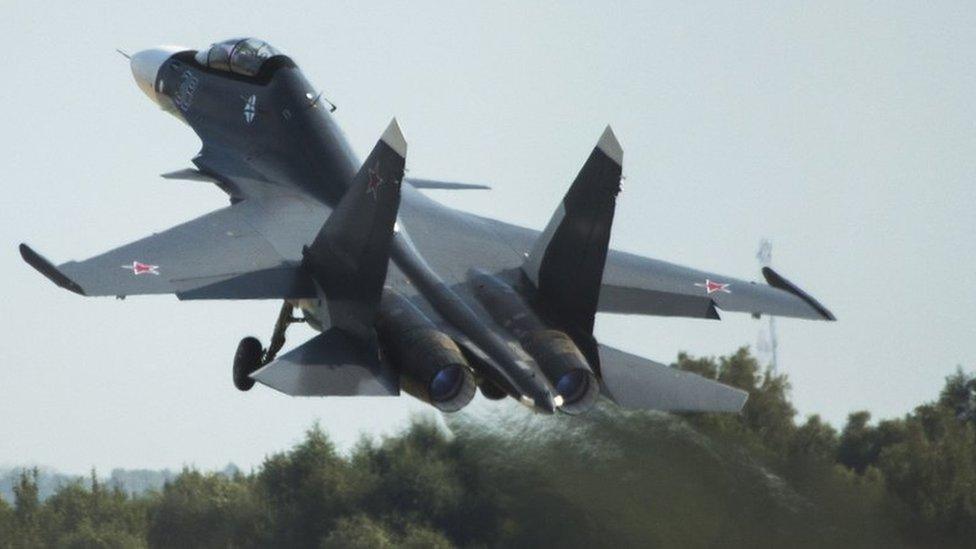
- Published11 March 2016
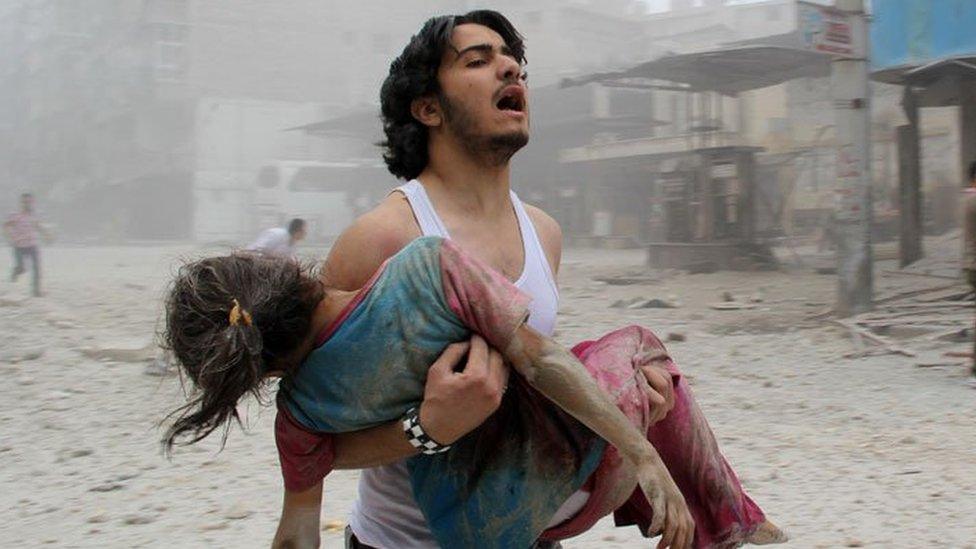
- Published10 July 2015
